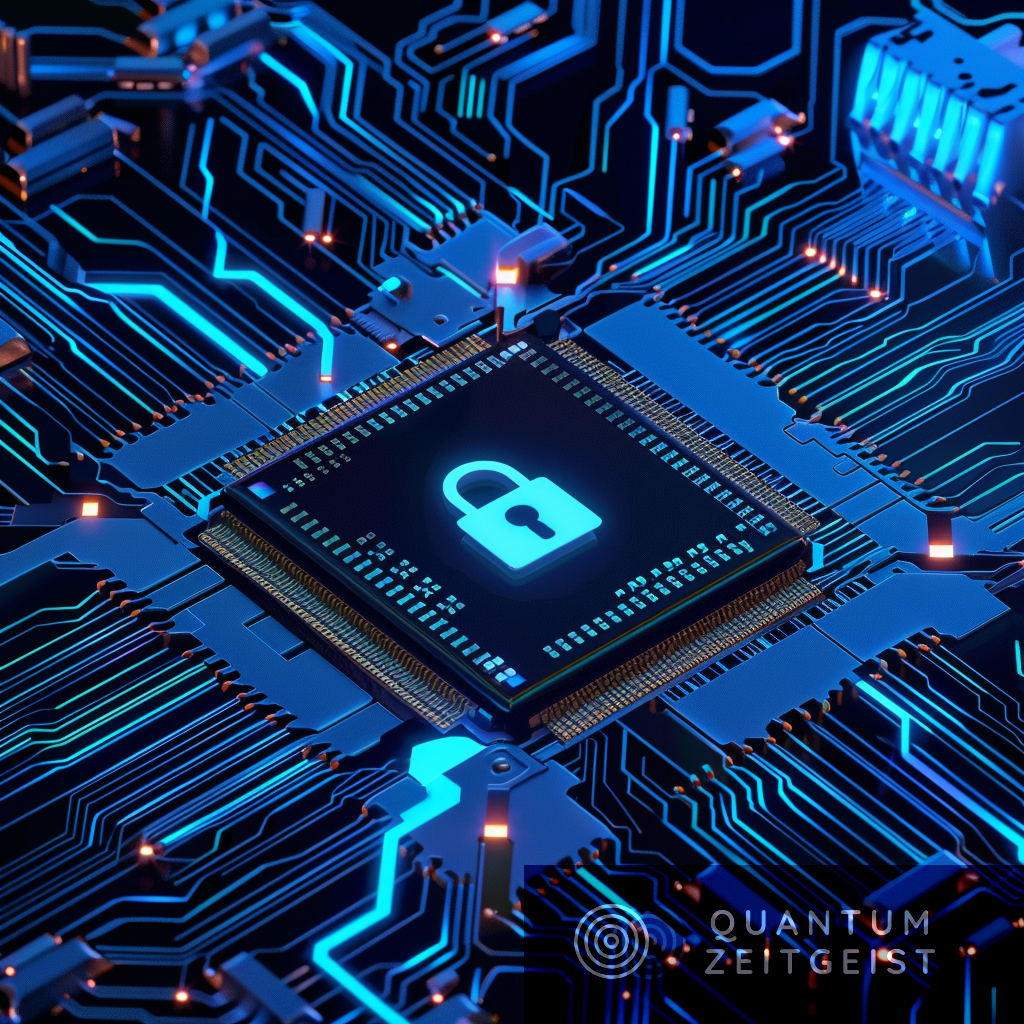NVIDIA has developed cuPQC, a software that accelerates the development of cryptography for quantum computing. The cuPQC library uses the parallelism of GPUs for demanding security algorithms. The U.S. National Institute of Standards and Technology is expected to introduce the first standard algorithms for post-quantum cryptography this year. NVIDIA’s cuPQC has accelerated Kyber, a proposed standard for securing quantum-resistant keys, by up to 500x. NVIDIA is part of the Post-Quantum Cryptography Alliance, and is collaborating with Amazon Web Services, Google Cloud, Microsoft Azure, and companies like evolutionQ, PQShield, QuSecure, and SandboxAQ on cuPQC.
NVIDIA’s cuPQC: A Leap Forward in Post-Quantum Cryptography
The advent of quantum computing has brought with it a new set of challenges for secure communications. NVIDIA’s cuPQC, a library designed to accelerate computing for developers working on cryptography, is a significant step towards addressing these challenges. By harnessing the parallelism of GPUs, cuPQC is able to handle demanding security algorithms, thus paving the way for a new era of cryptography.
The Impending Quantum Era and the Need for Advanced Security
Quantum computers, with their ability to break the public keys currently used to secure communications, have been a known threat for years. As these systems inch closer to readiness, there has been a surge in initiatives by both government and industry to tackle this crucial issue. The U.S. National Institute of Standards and Technology, for instance, is anticipated to introduce the first standard algorithms for post-quantum cryptography as early as this year. Cryptographers, therefore, require powerful systems to design and test advanced algorithms that can replace today’s public keys.
cuPQC’s Performance: A Significant Boost to Cryptography
In its initial benchmarks, cuPQC demonstrated its potential by accelerating Kyber, an algorithm proposed for securing quantum-resistant keys, by up to 500 times when run on an NVIDIA H100 Tensor Core GPU compared to a CPU. The performance is expected to improve even further with NVIDIA Blackwell architecture GPUs, given their enhancements for the integer math used in cryptography and other high-performance computing workloads.
Collaborative Efforts to Enhance Post-Quantum Cryptography
NVIDIA’s cuPQC is part of a broader community effort to develop post-quantum libraries and applications. The project is a member of the newly formed Post-Quantum Cryptography Alliance, hosted by the Linux Foundation. This alliance funds open-source projects and NVIDIA holds seats on both its steering and technical committees. NVIDIA is also working with cloud service providers such as Amazon Web Services (AWS), Google Cloud, and Microsoft Azure on testing cuPQC. Furthermore, companies specializing in post-quantum cryptography, including evolutionQ, PQShield, QuSecure, and SandboxAQ, are collaborating with NVIDIA, with many planning to integrate cuPQC into their offerings.
GTC: A Platform to Learn More about NVIDIA’s Quantum Computing Advances
Developers interested in post-quantum cryptography can sign up for updates on cuPQC. To gain more insights, they can watch a session on how NVIDIA is advancing quantum computing and attend an expert panel on the topic at NVIDIA GTC, a global AI conference. The conference, which runs through March 21 at the San Jose Convention Center and online, will also feature a keynote by NVIDIA founder and CEO Jensen Huang.
External Link: Click Here For More

